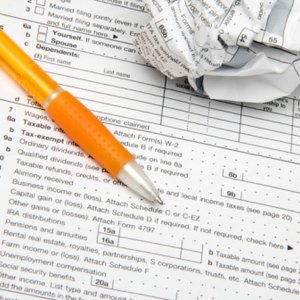
To learn what exempt from backup withholding is, you need to learn the backup tax withholding meaning. You also need to understand how it applies to you as a taxpayer.
What Is Backup Withholding?
Backup withholding is a taxation method that the IRS uses to withhold some types of personal and business income. It does this to prevent investors from spending all the monies they earn and, thus, failing to meet their tax obligations.
And it also applies to incomes that are not usually subject to withholding based on your status as a taxpayer. Generally, the IRS levies backup withholding on investment income using an established tax rate that currently stands at 24 percent as you withdraw it. For example, if you have investment earnings worth $25,000 due to you, your payer will be required to withhold $6,000.
However, the IRS is likely to tax you this way through the financial institutions that hold your investments. The incomes that fall under this category include rent, dividends, commissions, gambling winnings and interest payments, among other things.
In addition, the IRS may apply backup withholding when you fail to meet rules on taxpayer identification numbers (TIN). These numbers help to identify you when you report on the necessary returns, which tend to fall under all manner of Form W-9 or Form 1099s. And they include:
- An employer identification number (EIN)
- A Social Security number (SSN)
- An individual taxpayer identification number (ITIN)
Also, the IRS may choose to subject you to a backup withholding order for other reasons, such as you have failed to account for some of your income, and you have to comply until the issues can be sorted.
How Backup Withholding of Income Works
Before the IRS subjects you to backup withholding, it will issue a warning to your payer, who must then notify you of the issue. However, you can minimize the chances of subjecting yourself to such taxes by following tax reporting instructions and carefully verifying your details.
In addition, you can also stop the application of backup withholding by reaching out to the IRS yourself to resolve the issue. You can do that by amending the income information, proving you have not underreported your income or showing that backup withholding will cause you undue hardship.
Once the warning has been issued, the payer will have to withhold 24 percent of your income, file Form 945 and report the backup withholding for the year. You will then receive information on the amount that has been withheld. And when you file your federal returns, if the records show you have overpaid your backup withholding, you will receive a refund.
Exemption From Backup Withholding
Therefore, the term “exempt from backup withholding” means you are not subject to backup withholding by the IRS. As a result of this exemption, you will not be subject to the 24 percent taxation rate. And you have access to this exemption if you:
- Provide the correct TIN when reporting your income.
- Provide certification that you're not subject to backup withholding because you meet the threshold of U.S. exempt payee. For example, if you are a middleman known in the investment community as a custodian or nominee or futures commission merchant registered with the Commodity Futures Trading Commission, you qualify for this exemption.
- Earn incomes that are typically exempt from backup withholding. These forms of income include retirement account distributions, unemployment compensation, real estate transactions and long-term care benefits, among others.
It is critical to give the IRS correct information about your income. For that reason, you should take the time to verify it. And if you discover that you have provided incorrect information that misrepresents your earnings, it is better to amend it as soon as possible to avoid trouble. In addition, if you owe money, you should take steps to pay your debts.
A taxation flat rate of 24 percent is pretty punitive. So, there is no need to subject yourself to backup withholding if you don’t have to, especially if the matter is something you can easily rectify.
References
Resources
Writer Bio
I hold a BS in Computer Science and have been a freelance writer since 2011. When I am not writing, I enjoy reading, watching cooking and lifestyle shows, and fantasizing about world travels.

